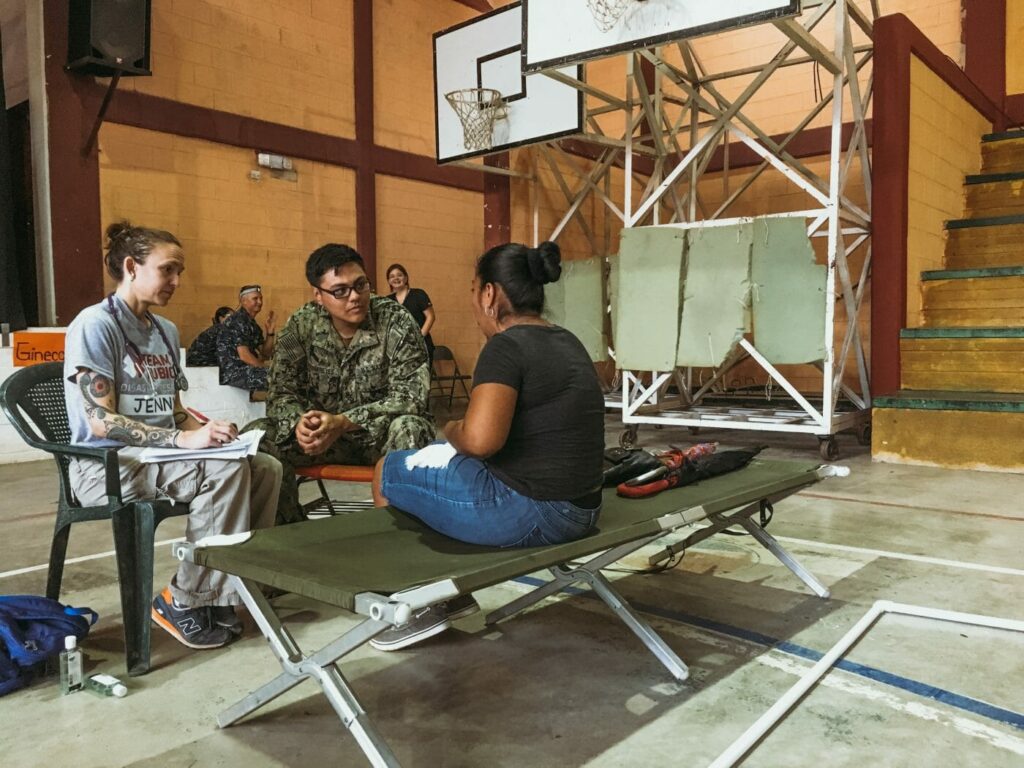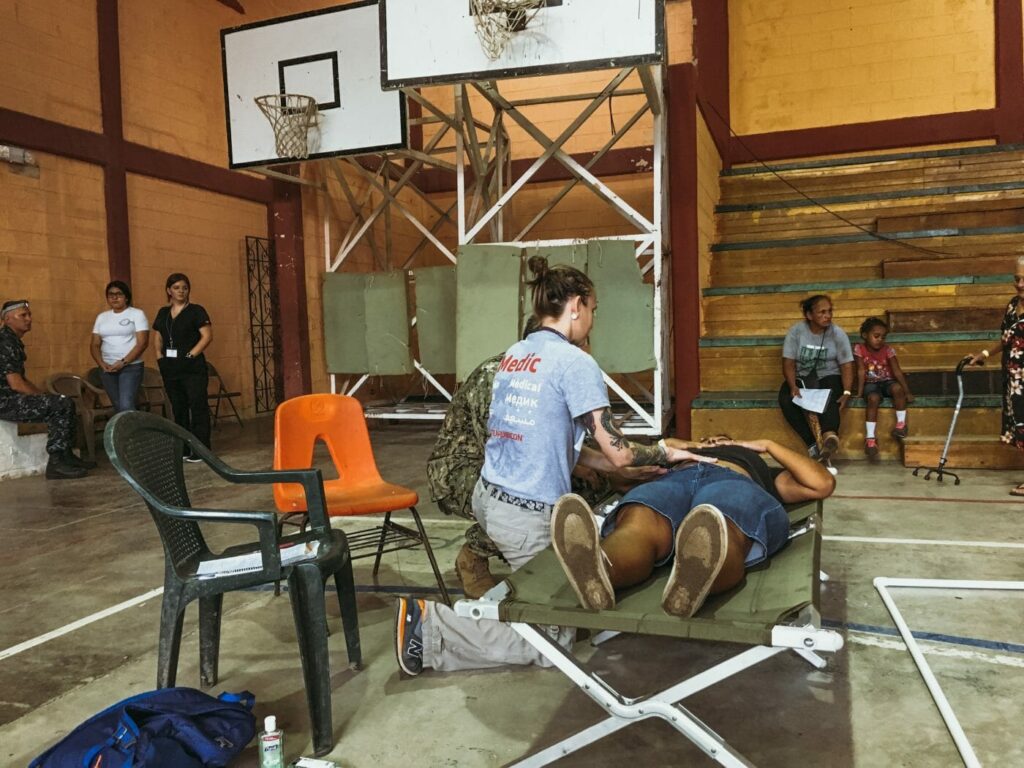Team Rubicon was in Honduras working with the U.S. Navy and U.S. Southern Command as part of Operation Continuing Promise. It was our third day working together as a team and I had just started seeing patients in the gymnasium clinic. A patient presented with chest pain and was assessed by a Navy corpsman, who immediately realized they needed to be seen by a doctor urgently.
Since I am a critical care physician, they immediately brought the patient over to my area where the TR Assistant Team Leader took the patient’s vitals. Using his history as an EMT, he quickly realized the critical nature of the patient and asked me to see him right away. My quick assessment found the patient had the classic signs of an acute heart attack. I consulted with the Navy Physician, who managed the clinic, and he approved the use of an ambulance. Another Navy Lieutenant immediately brought the paramedics over.

The previous day I had helped teach advanced cardiac life support airway skills to some paramedics. By chance, these same paramedics were the ones who responded to our need. Not only were they fast, efficient, and happy to see a face they knew, but merely two hours after finishing their ACLS class taught by the TR Medical Operations and Planning Chief, they were using those skills to transport a patient to the local hospital. Within 24 hours, the Honduran paramedics were taught skills by TR, responded to a joint call from the Navy and TR, and helped to save a patient’s life.

My patient’s wife was also there for evaluation. I was able to see her prior to the paramedics leaving. As her husband was wheeled away from the clinic by the paramedics and the Navy, his wife turned to me, hugged me, and with tears in her eyes thanked me.
To learn from each other, to help each other, to work together, and to make a difference. Every person has value, every life has value, and every interaction like this affects everyone involved. That is why I am here. That is why we are all here.



